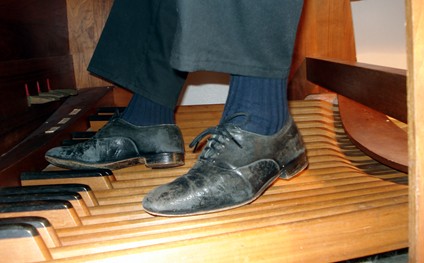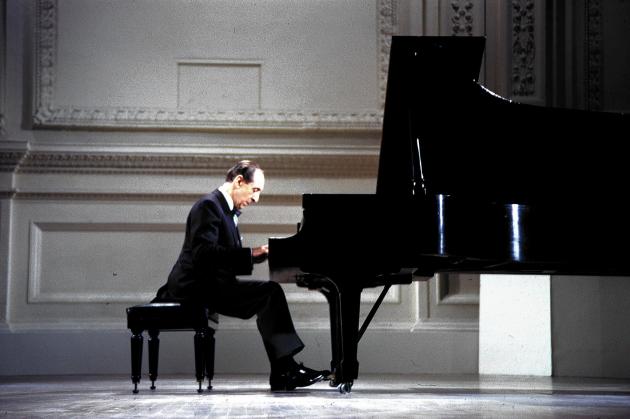I’ve missed my calling. I should be a geneticist. I have much odd material to work with.
My mother’s family are prone to Rosacea. Red skin, appearing to be flushed with embarrassment or heat most of the time. The nose eventually swelling to look like W. C. Fields (whose nose was misshapen by Rosacea, not by booze).

It’s all in the genes.
My father’s family are prone to barnacles, growths on the skin that serve no apparent purpose. The least fortunate of us have a plethora of them. My family and—more especially—my friends are kind to ignore the encrustments on my head. I imagine some people when they first meet me are put off. I’ve been asked by a couple of men who wanted to date me if there is something wrong that should be taken care of.
Well, yes, there is something wrong. Icky blemishes on my skin. If I were a billionaire, I’d have a private dermatologist to fix them. But, since I’m not, anyone who wants to be my friend will simply have to get over them. None of them are cancerous or otherwise dangerous, and they are mine to keep—not in any way communicable.
I’m not a billionaire, and that means (as all Americans know) I am lazy, or unfocused, or defective in some other way, because in America, under capitalism, I should be a billionaire simply by dint of my hard work and cleverness (I’ve worked pretty hard most of my life, and I’m moderately clever).
The truth of the matter is that genetics have prevented me from amassing great wealth. Unless one’s genetic makeup is white-European, male, and (not actually genetic, but a large essential component of the process) Christian, one has little chance of becoming a billionaire. Why, then, am I not a billionaire?
According to Forbes magazine’s annual listing, of the 400 richest Americans, 358 are men (42 women). Of those, only 14 are of racial/national backgrounds not thought of as white-European, and only one is a woman of color. Whether or not any is gay, the listing does not say. (There are actually 513 American billionaires, but Forbes lists only the top 400 in their statistics, so it is possible that some of the other 113 are people of color and/or women or gay.)
My genetic pre-disposition to skin blemishes must be the cause of my poverty. I am white-European and male, moderately hard-working, and clever, but with blemishes.
The other reason I am not wealthy is, since one’s genetic makeup can insure great wealth, only a certain evolved few can be billionaires. If one has the last name Getty, Perot, Nordstrom, Sacks, Carlson, Ziff, Kaiser, Cargill, Rockefeller, Kraft, Kohler, Kellogg, or Murdock, for example, one is almost guaranteed to be genetically predisposed to be on the list.

The Pritzker family: Secretary of Commerce, third from right.
A few other family names make billionairehood even more likely. Among those 400 richest Americans, at least three have the Koch family genes, five the Walton, four the Hunt, two the Bass, four the Pritzker, and three the Mars. Of the 400 richest Americans, at least 37 were born with genes that guarantee wealth regardless of hard work or cleverness.
At least one, Penny Pritzker, was guaranteed not only wealth, but political power. As the 263rd-wealthiest American (at $2.5 billion) she is the Secretary of Commerce, the head of all of the genetic wealth-regulating agencies of the government.
I think it’s fair to ask those billionaires who talk about the “American dream” and other religious mythologies to acknowledge their genetic predisposition to wealth. My genetic pre-disposition to obvious skin deformities might not have prevented me from having great wealth if I had had, for example, some of the Koch family genes.
Even though there is one person of color among the 400, we cannot extrapolate from there that other people of color have the same genetic predisposition to wealth as, say, the Hunts and the Waltons.
The genetic predisposition to wealth is not exclusively an American phenomenon. Forbes’ list of the billionaires in the world is now 1,645 worldwide. And remarkably enough, nine of those billionaires are people of color, disproving the theory that people of color never have the pre-disposition.
Aliko Dangote, $25 billion – Nigeria
Mohammed Al-Amoudi, $15.3 billion – Saudi Arabia
Mike Adenuga, $4.6 billion – Nigeria
Isabel Dos Santos, $3.7 billion – Angola
Patrice Motsepe, $2.9 billion – South Africa
Oprah Winfrey, $2.9 billion – America
Folorunsho Alakija, $2.5 billion – Nigeria
Abdulsamad Rabiu, $1.2 billion – Nigeria
Mohammed Ibrahim, $1.1 billion – Britain
0.5% of the billionaires of the world are people of color. (Nigeria seems to be rich in the genes.) Two of the nine are women. Isabel Dos Santos is the daughter of Angola’s President José Eduardo dos Santos. In some few cases the genetic predisposition to wealth also predisposes one to political power (see Penny Pritzker above). Everyone knows who Oprah is.
One of the most remarkable aspects of the genetic predisposition to billionairehood is that one of the most common concurrent genetic predispositions these people have is to being, at least nominally, Christian. Which is strange because, according to at least one explanation of the tenets of their religion, perhaps they should not be rich at all.
When Jesus saw the crowds, he went up the mountain; and after he sat down, his disciples came to him. Then he began to speak, and taught them, saying:
• Blessed are the poor in spirit, for theirs is the kingdom of heaven.
• Blessed are those who mourn, for they will be comforted.
• Blessed are the meek, for they will inherit the earth.
• Blessed are those who hunger and thirst for righteousness, for they will be filled.
• Blessed are the merciful, for they will receive mercy.
• Blessed are the pure in heart, for they will see God.
• Blessed are the peacemakers, for they will be called children of God.
• Blessed are those who are persecuted for righteousness’ sake, for theirs is the kingdom of heaven.
• Blessed are you when people revile you and persecute you and utter all kinds of evil against you falsely on my account. Rejoice and be glad, for your reward is great in heaven, for in the same way they persecuted the prophets who were before you.
I’m not suggesting that the genetic predisposition to wealth means a priori that one cannot be “poor in spirit,” or “meek,” or “peacemakers,” or “persecuted,” only that I, in my limited experience, have seen little evidence of it. I don’t mean to judge, but to question. How does all of this fit together?
The Christ of the Christian religion is recorded as saying the “meek” (can I equate them with those who are not genetically predisposed to wealth and power) will inherit the earth. Ellen Hinsey says that will happen only when “the final pilgrimage is done.” I wonder when that will be.
“The Multitude,” by Ellen Hinsey (born 1960 in Boston)
Standing at the edge is the great Multitude.
They inch forward in their rags and hunger.
Their movement along the ground lifts
the sound of ancestral migrations.
They are carrying the dark water of need
in their eyes; they are carrying the first
vowels, the first consonants,
But their mouths are silent, and watchful.
And the great scavenging wings hang over them;
the raven eyes hunting among the muteness
of the winding cortege.
Beside them are the pools filled with the specters
of famine, civil war, drought—
They become one body, a muscle of need.
A testament of want.
And night—which is always upon them—rides them
like the wild horses of the storm-filled plains.
They will inherit the earth only when the final
pilgrimage is done.
For in this life, the crystal lake and the great sword
of understanding, raised high, will not show
them mercy.
Far off, in the West, a light burns brightly. But
it is not for them.
(written 2013—not yet published)
An interesting field of study, genetics.

when the final
pilgrimage is done


























